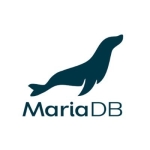What is our primary use case?
We are using the solution for our online transaction system - that is debit cards - and we are using it for our loan origination system as well. There are two systems that are deployed on it and we are getting a good experience from it.
What is most valuable?
The Data Guard feature is the most valuable aspect of the solution.
The initial setup is pretty straightforward.
The solution is stable.
The scalability is quite good.
I have always found the technical support to be very helpful.
What needs improvement?
The solution is expensive. They should work at making the pricing more reasonable.
They should be putting more emphasis on the Windows platform. Usually, they run very well on the Linux platform, however, their performance on Windows is a little bit lower quality.
They have to work on their flashback feature. Right now, it is a cumbersome process.
It is actually very heavy on the storage. If Oracle could do something about it, that would be great.
For how long have I used the solution?
I've been using the solution for the last 23 years at this point. It's been over two decades. I've used it for a long time.
What do I think about the stability of the solution?
The stability is quite good. there are no bugs or glitches. It doesn't crash or freeze. It's reliable.
What do I think about the scalability of the solution?
The product is quite scalable. You can add as many servers as you would like to. It's not a problem.
The product is not deployed for the user base. It is deployed for the backend service. The amount of actual users is only one or two people.
We do not have plans to increase usage. The cost is too much of a factor now. I'm not sure if I will be using it anymore.
How are customer service and support?
Technical support has been great. I am satisfied with the level of service we receive.
Which solution did I use previously and why did I switch?
We have Oracle Database and SQL Central Server Database in our environment. We're moving to SQL based on the generally high cost of Oracle.
How was the initial setup?
The initial setup is very straightforward.
I'm very comfortable with Oracle as well, so for me, it was very, very convenient. I can't speak to the end-user or a user with the lower skillset in terms of their capabilities of setting it up. However, if you have some experience with Oracle, it's not bad.
The deployment only takes 45 minutes to an hour. It doesn't take long.
What about the implementation team?
I have installed it personally and it is very straightforward. However, it is possible to use an integrator or consultant to get the proper assistance.
What was our ROI?
We don't really calculate the ROI on the database itself. We calculate the ROI for the system. On whichever system is deployed on a database, we calculate it on a community basis. Therefore, of course, we get the ROI from whatever technology we deploy.
What's my experience with pricing, setup cost, and licensing?
While I'm a fan of Oracle as a solution, I am not a fan of the cost. It is very expensive.
For medium to small organizations, the current cost might not be viable as compared to SQL Server, which is much cheaper than Oracle and provides approximately the same functionality that they have.
You can choose a core-based license or a user-based license. There are no extra costs above the standard licensing fees. Typically it is a five-year contract that can be paid monthly or yearly.
What other advice do I have?
We are a customer and an end-user.
I'd advise those considering the solution to always keep their logs on a different database. Also, they have to make sure the parameterization they do in their initial setup is very, very extensively thought out.
I'd rate the solution at a seven out of ten.
Which deployment model are you using for this solution?
On-premises
Disclosure: My company does not have a business relationship with this vendor other than being a customer.















